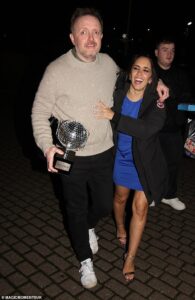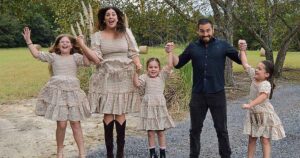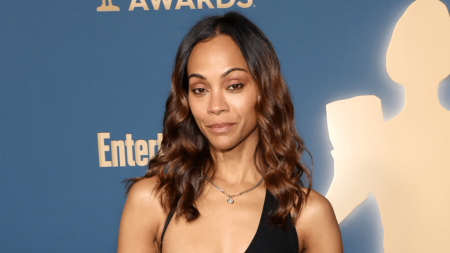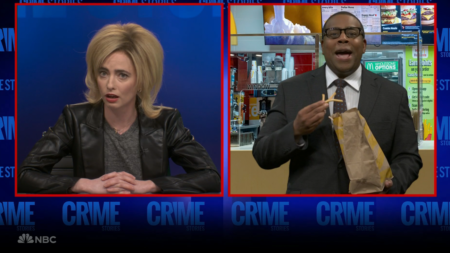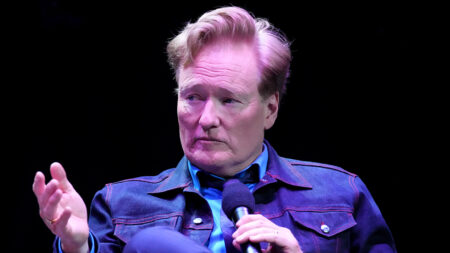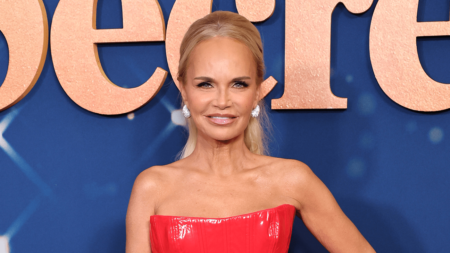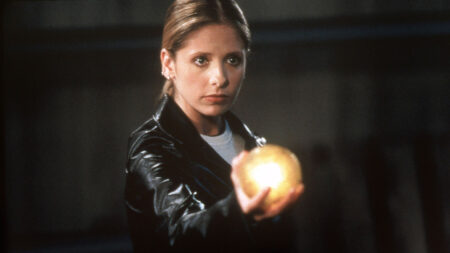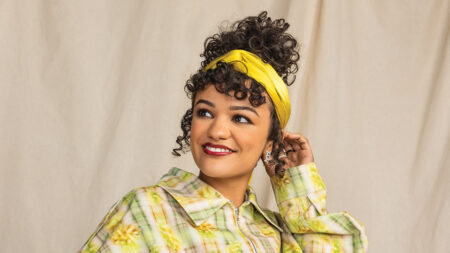Jessica Williams spent the first five years of her career essentially playing herself. Sure, the Daily Show correspondent gig she booked straight out of college allowed for some comedic liberties. And that job hosting the podcast turned TV show 2 Dope Queens forced her to really amp up the energy. But Jessica Williams, or some version of her, was front and center. These days, she’s more content disappearing behind a role.
“I’m able to just do a character, maybe go to Japan for a month, come back and go back to work,” Williams tells THR. “There’s something really nice about being private — especially now. Nothing’s a secret. Everything is viral.”
“Just doing characters” undersells what Williams has been able to build from her comedy roots. The 35-year-old has gone from massive franchises (two of the Fantastic Beasts and Where to Find Them films) and indie rom-coms (The Incredible Jessica James) to starring in Amazon’s most popular movie of 2024 (Road House) and scoring a role in Apple TV+’s Shrinking. The latter, which returned for its second season Oct. 16, already has prompted a supporting actress Emmy nomination for Williams. Hopping on a Zoom in October to discuss the new season of Shrinking — an ensemble comedy that at first was about therapists navigating a sudden death but is now mostly about friends drinking and exchanging barbs — Williams also dug into her recent return to The Daily Show, growing up with a grandma who loved Adult Swim shows and why she has no regrets about leaving podcasting before the boom.
Your character has a fixation on her water bottle. Is that something you brought to the role?
It’s one of our writers and producers, Annie McBain. She apparently kept bringing these huge-ass gallons of water, and I think they just talked so much shit about her that they added it in the show as one of Gaby’s defining traits. This season, it’s less of a gag, so I was the one in charge of making sure she has her bottle. I’m still fully committed to make sure Gaby’s hydrated.
You’ve talked a lot about how healthy this set is and what a great time you had on The Daily Show. What was a job where you felt like a fish out of water?
Probably Fantastic Beasts, because it was this huge machine and had a big legacy. I was living in London, during COVID, working with English actors, and an English crew, everything was completely different. I come from an improv comedy background, but you have to do those lines as written. There’s not room for that nuance of jokes. I felt like a fish out of water there. When I get to do a combination of comedy and drama, I feel really competent and really capable.
So you were cast in this massive franchise almost straight out of The Daily Show, which feels like an abrupt departure and a big step in your career. Were you seeking jobs like that?
Absolutely. When you do something like The Daily Show, or even Saturday Night Live, it’s still proving grounds. It’s like comedy grad school. I left college to do The Daily Show, and I learned so much. But we were doing five shows a week, and, once you’re correspondent, that’s what people see you as: as you. So the offers are, like, “Can you host this red carpet? Do you want to moderate? Can you do this interview?”
And that’s not what you wanted?
When you’re a correspondent, you get put in this box — for better or for worse. Some people are lifetime correspondents, and they’re fricking amazing. They’re doing what they’re supposed to be doing. I learned early on that I needed to be deliberate — especially as a Black woman in this industry, where people really try and get you in a little box. I want to play. I want to expand and contract onscreen. So, I had to say no a lot.
You’ve made several references to your late grandmother over the years — about how spending time watching television with her is what initially drew you to comedy. She was watching stuff like Space Ghost Coast to Coast, which is not quintessential grandma TV. Was she aware of the fact that she was into alt comedy?
No, I don’t think she was. But she watched it all — The Critic, Howard the Duck, South Park. She just liked what was funny — stuff that was considered really good, loud comedy. She was kind of an insomniac, so she would stay up till 3 or 4 in the morning every night. Stuff like Space Ghost was what was on at that time. Whenever I’d go stay with her in the Valley, I got to stay up late and have junk food. As long as I got her insulin shots in the morning and ordered the pizza on the phone, we were good.
But that’s what stuck with you?
It really imprinted. She gave me that little sense of strange that I think I’m able to bring to a lot of my characters. I always want to do something weird onscreen that we haven’t seen before. I want to do it in every moment. I’m always chasing Julia Louis-Dreyfus in everything I do. She is in every moment. She reacts to everything. She hears everything.
You returned to The Daily Show this year for some very funny segments. If you could go back to any other previous job for a day, what would it be?
Love Life. I had taken a break from acting a little bit. It was one of my first jobs back, and it was magical. I think about the characters all the time. I hope they’re OK. It was one of those first projects that I did where I was like, “Oh, yeah, I’m an actor and I can whoop this thing’s ass.” And it got canceled.
Damon Wayans Jr. is a new scene partner for you in the second season. He’s famously very funny on set. Tell me a little bit about working with him.
What’s great about season two is we mix and match all the characters. Me and Ted McGinley, me and Christa Miller, me and Michael Urie, we have our own vibe with one another — and each is so unique. The first season was about figuring it out, and now we just got to run with it. But in every scene, with every single actor, it’s my job to support them. That’s when I feel good. It’s my love language. And Damon? He is fast. Jason [Segel]’s really fast, too. And that’s exciting to me. What’s really great about two people playing in one of these rom-com situations is that you can go as fast and as lewd and as funny as the other person. And I’ve done rom-coms, but this is something I haven’t necessarily had before.
I don’t know how much you keep up with this stuff, but what was your reaction this summer when Paramount essentially wiped hundreds of hours of old Daily Show clips from the internet?
I always know when people take stuff that I’m in off of the internet. I could be out having a coffee, and I’ll get a pain, like, “Someone just scrubbed the internet of something that I’ve worked on, something crews worked on, something people spent so much time doing. They did it with Love Life, too. It’s just … wow. I feel it in my tits when they pull something. Quite a bit of my shit is not online anymore. And when I went back to The Daily Show, I wanted to see my old stuff. We have a Tesla in space! Why is it so hard to find stuff that we spent so much work on? It baffles me. The internet is supposed to be forever. It’s supposed to be infinite.
Do you and Phoebe Robinson ever talk about the fact that you stopped doing 2 Dope Queens at the height of its popularity — and just before these companies started shelling out $100 million deals for exclusive rights to podcasts? Any regrets there?
Oh, we made good money. (Laughs.) Yeah, there was this crazy boom where people were getting a gajillion dollars for podcasting — but podcasting, especially in that format, you have to talk about your personal life. I was in my 20s. I don’t know if I would necessarily say a lot of that stuff today. I like people not knowing what I’m up to. There’s something really nice about that. It’s another part of trying to break out of that mold of hosting. You’re able to keep your personal life a little more when you’re not just commenting on pop culture and doing bits. I’m able to protect my private space and my mental health.
This story first appeared in a December stand-alone issue of The Hollywood Reporter magazine. To receive the magazine, click here to subscribe.
Read the full article here
